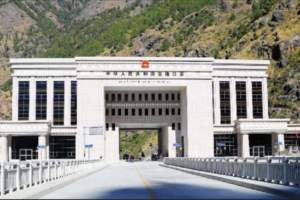
Haribol Acharya
That can we go without English today is a serious question. Yes, we can go or live without English if we are prepared to leave our city for a remote village wherein people are not vulnerable to the modern lifestyle at all. They eat the food items that were used a thousand years ago; they sleep in the houses that are very ancient in style. They are mainly agrarians and them till their lands and produce most of the foods they need from their own farms. They do not send their kids to schools. One cannot come across such places in Nepal, maybe we know a tribe called the tribe of Route in the western part of Nepal.
Today most of us living in the city and wanting to connect needs inevitably the English language. Of course to a great extent Nepali works and yet beyond a certain domain, we have to turn to English for a variety of purposes. One purpose is to pursue higher studies. It is hard to get books in Nepali, particularly, books of science or technology. Books in these disciplines are not translated in Nepali. What is more, people today want to go around the world and it is his nature to travel as far as possible if he has the means to travel and of course his mother tongue cannot work. That is why he needs a link language and this also compels him to learn English. That is why our schools and colleges made English compulsory.
Some people, so-called nationalists argue that we must do away with use of English and we must promote the use of Nepali in all aspects of life. This is only their arrogance since now we are living in an age of globalization and large numbers of people are going abroad for a variety of purposes. English is, therefore, a language without which people have to live in a stagnant pool in their confinements.
Again today people want to be informed immediately. Information is considered capital or asset. Yes, when we want to learn something about foreign countries, their economy, their society, their culture, their literature we need to learn English. There are so many professions wherein English is a must language. When something is happening or new discoveries and inventions are made in the field of medicines or engineering one needs English to learn from international magazines and journals which are mainly written in foreign languages and to find them in Nepali will be very difficult.
Though we love our country, our own culture but, we cannot love our economy which is poor and we need to come over it. Similarly, we cannot confine ourselves to Nepali though we have patriotic feelings. We need to be exposed to the world for which English is .essential.
We must no doubt love our mother tongue. But nevertheless, we must be aware of the fact that English opens for us a door of a thousand opportunities and possibilities. Living conservatively in the name of patriotism will ultimately lead to our downfall. Therefore English becomes a must language in Nepal.








